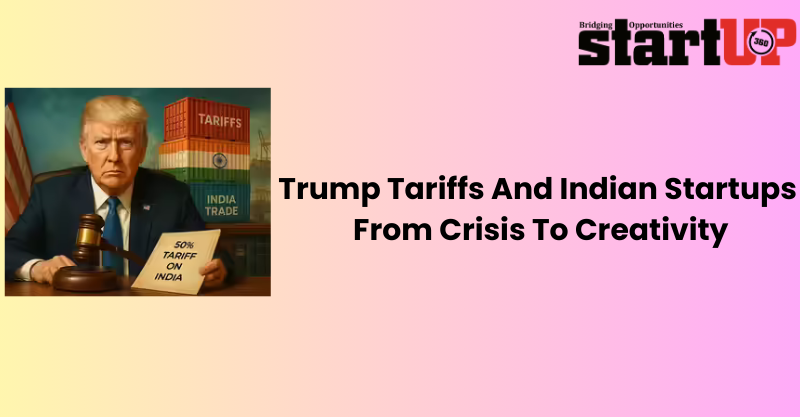Trump Tariffs And Indian Startups: From Crisis To Creativity
The Trump administration’s tariff policies, aimed at reshaping global trade, had ripple effects across the global economy. While China was the primary target, India’s startup ecosystem faced both direct and indirect challenges. Rising costs, disrupted supply chains, and investor uncertainties pressured many young companies. Yet, amidst the turmoil, Indian startups found ways to innovate, survive, and embrace self-reliance.
1. Crisis: Trump Tariffs and Startup Strain
The introduction of steep tariffs on imports, particularly in technology and manufacturing-related sectors, created significant challenges for Indian startups.
- Higher Costs: Startups dependent on Chinese hardware and components for IoT devices, electronics, and mobile accessories faced inflated prices.
- Supply Chain Bottlenecks: Reliance on global supply chains suddenly became a liability, as shipping delays and cost surges eroded margins.
- Investor Hesitation: With trade uncertainty at its peak, US-based investors slowed down funding into India’s startup ecosystem, forcing founders to tighten budgets.
2. Survival: Strategies That Kept Startups Afloat
Despite the tariff-induced strain, Indian startups showcased resilience.
- Diversified Sourcing: Startups began exploring suppliers within India and across Southeast Asia to reduce dependency on China.
- Lean Operations: Companies trimmed costs, adopted frugal innovation, and focused on core offerings.
- Market Shifts: Startups redirected their attention to emerging markets in Africa and South Asia, where demand was rising, thereby offsetting the losses from US markets.
- Digital Transformation: Service-based startups leaned on digitization and remote collaboration tools to sustain operations.
3. Creativity: The Rise of Self-Reliance
The crisis acted as a catalyst for India’s Atmanirbhar Bharat (Self-Reliant India) vision.
- Local Manufacturing: Hardware startups partnered with Indian manufacturers, boosting local production capacity.
- Innovation Push: Rising costs encouraged startups to design efficient and cost-saving solutions, thereby differentiating themselves through R&D.
- Ecosystem Growth: Universities, incubators, and government initiatives stepped in to support startups building alternatives to imports.
- Brand India: With global investors keen to diversify beyond China, India emerged as a promising hub for innovation and scalable startups.
4. Lessons Learned
The Trump tariffs highlighted key lessons for Indian startups:
- Overdependence is Risky: Reliance on a single country or market can threaten sustainability.
- Agility Matters: Startups that pivoted quickly to alternative strategies thrived.
- Self-Reliance is Strength: Building domestic ecosystems reduces vulnerability to global shocks.
Conclusion
Trump’s tariffs reshaped the global startup narrative, and for India, they proved both a challenge and an opportunity. The journey from crisis to creativity revealed the resilience of Indian entrepreneurs. Today, Indian startups are stronger, more self-reliant, and better prepared to thrive in an unpredictable global trade environment.

